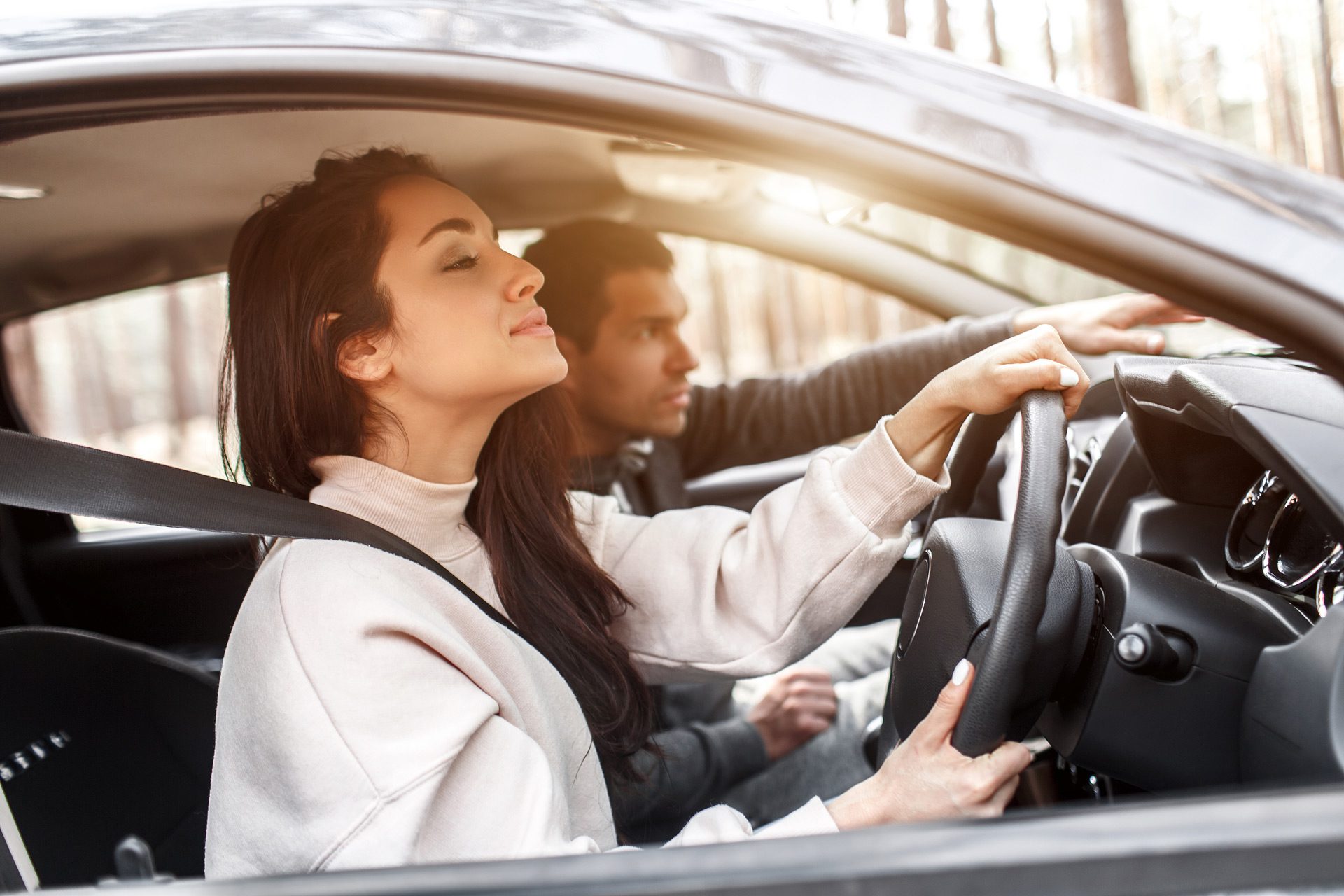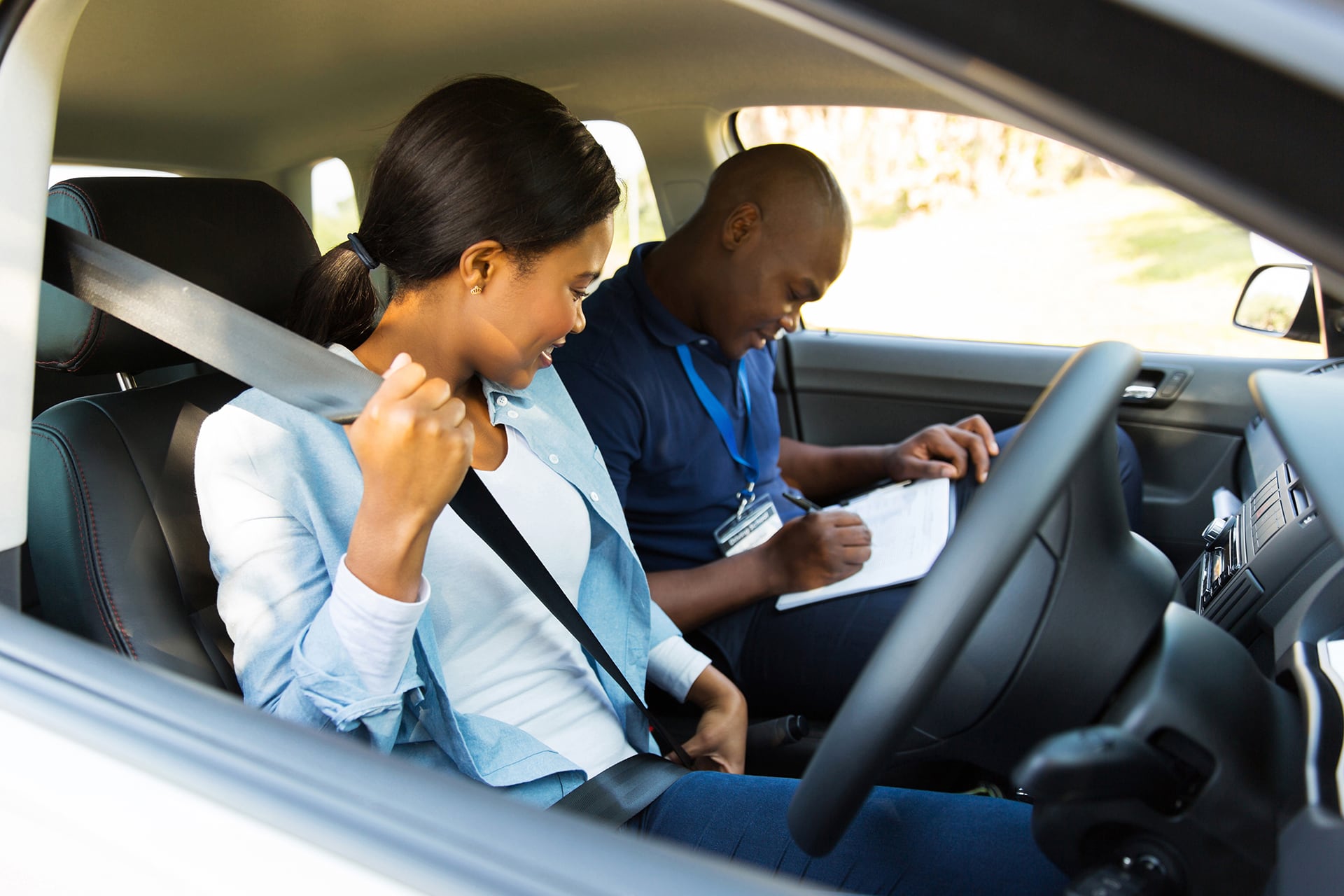Learning to drive can be an exciting milestone but the rules and regulations around being a learner driver can be overwhelming and, at times, confusing.
Perhaps you’ve just received your provisional driving licence and you’re eager to begin learning, but you’re unsure about the process.
You might be wondering how to get the right insurance, whether you can carry passengers around or where you’re legally allowed to drive as a learner. Fear not! With our comprehensive guide, you’ll be clued up on every aspect of being a learner driver.
Who can sit with a learner driver?
Many learner drivers choose to have formal lessons with a qualified driving instructor alongside gaining experience with a family member or friend.
If you’re wondering who can teach you to drive, you need to be aware of a few rules. Legally, you must be accompanied at all times by a fully qualified driver over the age of 21. The driver must also have held their full driving licence for at least three years.
If the person accompanying you doesn’t meet these criteria, you can be fined £1,000 and receive up to six penalty points on your provisional licence. It’s also illegal for anyone accompanying a learner driver to use their mobile phone whilst in the vehicle.
Dayinsure, like many insurers, requires the supervising driver to be between 25-75 years old, which is above the legal requirement. It’s vital that you choose someone that meets the minimum requirements of your cover so that you’re practising safely.
What happens if a learner driver is caught driving alone?
It’s illegal to drive on a provisional licence when unaccompanied, so driving alone could result in prosecution. Driving without supervision could also invalidate any insurance and you could end up with extra points on your provisional licence for this, potentially resulting in a driving ban.
Learner driver insurance
An important aspect of learning to drive is making sure you take out the right insurance.
Do learner drivers need insurance?
It’s illegal for anyone to drive a vehicle uninsured, and learner drivers are no different. If you’re learning to drive with a friend or family member outside of your lessons with an instructor, you’ll need to have the correct insurance.
How much is learner driver insurance?
Taking out driving insurance as a learner driver has a reputation of being pricey, but the actual cost depends on a variety of factors. Your age, the vehicle you’ll be driving, where you live and the insurance option you choose will all have an impact on the amount you’ll pay.
How to insure a learner driver
There are a few options when it comes to insuring a learner driver:
- Named driver on an annual policy – this can be a good choice if you’re learning to drive in your parents’ car, for example. Whilst it will increase the premium (and some insurers could refuse altogether), it’s usually cheaper to do this than take out an annual policy of your own. It’s worth bearing in mind, however, that if an accident were to happen whilst you were driving, it could affect the No Claims Bonus of the policyholder.
- Take out your own annual policy – if you have your own car that you’re going to be learning to drive in, it’s a good idea to take out an annual insurance policy of your own. Whilst this might be the more expensive option, it will allow you to build up your No Claims Bonus and provide you with fully comprehensive cover. It’s important to be aware that, although it might be cheaper, claiming that someone else is the main driver of your vehicle to reduce the premium (fronting) is actually a form of fraud.
- Learner driver insurance – taking out temporary learner driver insurance is a flexible option that allows you to cover most vehicles with a short-term, fully comprehensive policy. With Dayinsure learner driver insurance, you can choose to insure a car from as little as one hour up to five months, so you won’t need to worry about having the correct cover whilst learning to drive. Plus, having a separate insurance policy to the main driver of the car means that their No Claims Bonus is protected should anything happen. Take a look at our acceptance criteria to find out more.
Whichever insurance option you choose, the supervising driver still needs to have their own insurance policy if you’re learning to drive in their car.
Rules whilst out driving
Now we’ve covered the insurance, let’s take a look at learner driver rules whilst out on the road.
What type of car can a learner driver drive?
A learner driver can drive most types of car, as long as they’re supervised by a qualified driver who meets the legal criteria.
If you learn to drive and pass your test in an automatic car, your full driving licence will only allow you to drive this type of vehicle. Passing your test in a manual car means you can legally drive both automatic and manual cars.
Your driving licence will include categories of the types of vehicles you can drive. To drive vehicles such as buses and those over a certain weight, you’ll need to pass another test specific to that category. You can apply for a provisional licence for these higher categories.
Does a learner driver need L plates?
All learner drivers must display L plates on the front and back when driving a vehicle. Failure to do so could result in getting points added to your licence, which will carry over once you’ve passed your driving test.
If the car is used by someone else, or the person supervising you drives the vehicle at any point, you must remember to remove the L plate stickers.
Can a learner driver have passengers?
It’s not illegal to carry passengers as a learner driver as long as you still have a supervisor sat in the front seat who meets all the criteria. However, some learner drivers might find it a distraction to have people in the back of the car whilst they’re learning, especially when practising manoeuvres!
Can learner drivers drive on the motorway?
It used to be the case that learner drivers were not legally allowed to drive on motorways. However, the law changed in 2018. A learner driver is now able to take driving lessons on the motorway, as long as it’s with an approved instructor and the car has dual controls.
Driving on the motorway as a learner driver with someone who’s not a qualified instructor is illegal.
Take a look at our guide to motorway driving for useful tips and advice, whether you’ve already passed your test or you’re still learning.
Can learner drivers drive at night?
Yes, learner drivers can drive at any time of day, provided they’re properly supervised. In fact, it’s a good idea to experience driving in a range of conditions so you’re prepared for when you pass your test.
Can learner drivers get speeding tickets?
Learner drivers, just like all other drivers, can get a speeding ticket if they’re caught driving over the speed limit. Although any letter or fine might be sent to the car owner, they can nominate you as the one driving the vehicle at the time.
This is something to be avoided as you could end up with points on your licence and/or a ban before you’ve even passed your test.
Choose Dayinsure for your learner driver insurance
If you’ve just got your provisional licence or you’re thinking about taking extra lessons, get a quote today for temporary, learner driver insurance. You could be covered in minutes, allowing you to build up your driving experience in no time.
Don’t forget to check out our news section for extra tips and advice on everything from understanding a car’s warning lights to the must-have features in a learner driver car.



